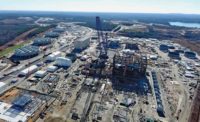Sustainable Solutions are Good Business
 |
| Beinstein |
Globally, the movement toward sustainability and TBL-focused results is rapidly accelerating—but how individual business leaders adapt, and how their firms can benefit from this shift is an open question.
As Bob Langert, the former vice president for sustainability at McDonalds put it recently: “Sustainability may be a fuzzy term, but it’s a real part of our future."
So what is the business case for adopting a more sustainability-focused operating model, particularly in the AEC industry, where so much of our impact and return is tied to client projects? To me, working to understand our clients’ insights and drivers, then adapting our operating models appropriately, is the best way to be ready with the engineering solutions those clients will buy in the future. Let’s examine a sampling of those drivers.
Carbon Pricing is Coming
It’s increasingly clear that climbing greenhouse gas (GHG) concentrations are changing earth’s climate, posing risks to both business and society. Former U.S. Treasury Secretary and Risky Business Coalition member Robert Rubin has stated unequivocally: “Climate change is a material risk for business.” He is a risk committee member of the Risky Business Coalition, a group of top business leaders that focuses on quantifying and publicizing the economic risks from the impacts of a changing climate.
Leading up to the 2015 World Economic Forum in Davos, multiple entities signaled their support for carbon pricing, including more than 1,000 businesses and 340 institutional investors representing over $24 trillion in assets, not to mention countries, states, provinces, and cities responsible for 54% of global GHG emissions and 52% of GDP.
Risky Business and the B Team, the global nonprofit co-founded by Sir Richard Branson and Jochen Zeitz to "make business work better,” are lobbying at the C-Suite level to create a global groundswell, with demonstrable success.
In May, five major oil companies joined in, calling on governments to introduce carbon pricing systems where they do not yet exist and create an international framework to connect national systems. Along with a growing number of others, they believe removing carbon uncertainties will enable markets to react and innovate around low-carbon solutions.
Inclusivity, Transparency and Collaboration Drive Innovation
With earth’s population projected to reach beyond 9 billion by 2050, and increasingly urbanized, our clients are learning quickly that they must engage all stakeholders early and often when planning and designing projects.
While this can be an uncomfortable and unfamiliar reality, it also represents an opportunity. New voices, tools, and ideas are creating innovation in places like New York City, Porto Alegre, Brazil, and Chennai, India, which have leveraged social media and crowdsourcing to dramatically increase the data available for public infrastructure decisions. In our ever more connected world, this trend is certain to continue.
We Manage What We Measure
Taking a broader look at how your firm can implement and benefit from sustainability often yields new opportunities. Examining your internal operations can yield some surprisingly rich opportunities for operational efficiency, impact reduction, and marketing advantage.
For ideas, look to the sustainability reports both competitors and clients are publishing. Increasingly, our private sector clients (and some forward-leaning public agencies) are including metrics such as social good and natural capital in project evaluations.
Companies that include Dow, Ikea, DuPont, Unilever, Coca Cola, Pepsi and Kering are creating new metrics for success, and are finding deep business value as they do.
Paul Polman, Unilever’s CEO, stated that in an increasingly resource-constrained world, “success will require completely new business models” that incentivize “…a focus on the long term, a broader form of stakeholder capitalism, and stronger, better-informed boards of directors.
On the cutting edge of this transformation is the B-Corp (or in 29 states, the Benefit Corp.) movement. These for-profit entities have added social goals to their corporate charters, measuring and reporting on both financial results and societal benefits. Finally, as the long-known shortcomings of solely using GDP to measure progress gains mainstream recognition, at least two states (Vermont and Maryland) now supplement that metric with Genuine Progress Indicator (GPI) data to assess proposed policies.
Master the Tools for a New Generation
An evolving suite of tools can help identify the way forward. The Carbon Disclosure Project and Global Reporting Initiative define transparent reporting protocols for impacts and sustainability-related actions, while the Sustainability Accounting Standards Board helps corporations disclose material information to investors.
More specific to AEC firms, the Envision Infrastructure Sustainability Rating System provides a holistic sustainability framework for planning and designing global infrastructure projects. Envision breaks projects into five “credit” categories—Quality of Life, Leadership, Resource Allocation, Natural World, and Climate and Risk—ensuring that the drivers discussed above are addressed throughout the project cycle.
In the end, the business case for sustainability implementation will be individual for each firm, but the drivers explored here are likely commonalities.
As these trends accelerate in the coming years, our industry is charged with nothing less than reinventing how we deliver the engineered solutions the world needs in ways that generate fair profits, deliver long-term value and foster social benefits for the broadest possible range of stakeholders. Firms that can grasp these realities, and ready themselves to play a role, will prosper along the way.
Robert M. Beinstein, P.E., ENV SP, is Director of Sustainability for the Environmental Financial Consulting Group Inc. (EFCG), an AEC sector financial management consultant in New York City, and is former director of sustainable development programs at CH2M. He can be reached at rbeinstein@efcg.com, or followed at https://twitter.com/bobbeinstein.



